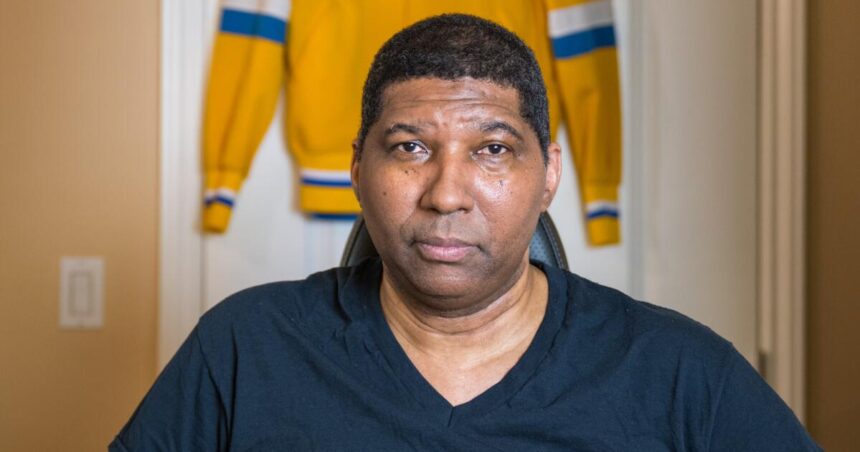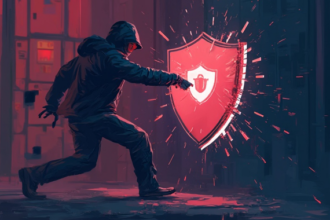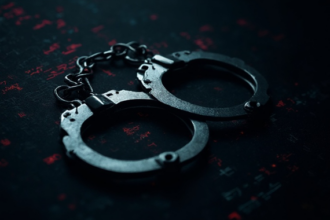Once hailed as the fastest player in college basketball, he now moves at the push of a button. His motorized wheelchair starts and “Rocket Rod” Foster uses a joystick attached to the end of the armrest to propel himself around his West Los Angeles apartment.
He can lift his right arm to shoulder height; his weaker left arm can only lift a few inches. Foster can’t cut food or get out of bed without the help of his sister, with whom he lives, and even she is sometimes unable to protect the former UCLA star from the dangers of this terrible disease.
When he fell from a modified recliner he was using as a bed, he called 911 and three firefighters helped him to his feet. Sleepless, and even worse in the morning. Foster wakes exhausted, his strength slowly returning. Physical therapy carries its own risks: When he reaches a breaking point while using foot pedals designed to strengthen muscles, the disease can progress.
It’s easy to be tempted to curse this rare disease that can leave you feeling helpless, but Foster recalls the salvation that began with a Jeep accident nearly 40 years ago. The moment that effectively ended his NBA career was also the beginning of a healthier life, one rooted in unwavering faith.
“I don’t believe in faith,” Foster said, “I believe in knowing that God is in control of everything.”
Foster was driven by his belief and returned to his old campus on Friday, where another UCLA figure championed his cause. With a few missing teeth and messy hair, Foster was hesitant to go because he was worried about his appearance. But after getting a bridge and cutting his hair, he felt more confident about his appearance and quickly sent out invitations to his former teammates.
It was a flurry of excitement, like when Foster became part of the first freshman backcourt to reach the NCAA finals in 1980 after Sports Illustrated had declared the Bruins had collapsed three months earlier.
But you can’t beat this disease. Foster says this is all just part of a bigger plan, and there’s a sparkle in his eyes as he speaks. But the next moment he falls silent, his eyes filled with sadness.
No matter how much he wants to believe otherwise, the situation is only getting worse.
“My body is at war with itself,” he said. “It’s at war with itself.”
His toilet seat is motorized and goes up and down, giving him precious moments of independence.
His bed resembles a pre-flat-bed era first-class airline seat, with a similar mechanical operation, but he still needs his sister’s help to get into a wheelchair that offers little comfort and leaves him in pain after hours of sitting in it.
Moving from wheelchair to wheelchair is a task in itself. After putting a belt around his waist, his sister bandages his knees to keep his legs from bending. She pushes him down, stabilizes his legs, supports him with crutches under his arms, and pulls him forward so he can take a few steps to reach the wheelchair.
It’s a difficult operation for someone who is unsteady on his feet: Foster says he’s fallen 10 times in different locations since he first realized something was wrong about eight years ago, including once when he slipped in an alley and a neighbor had to lift him onto his back.
Initially, the illness manifested as weakness during training, which doctors chalked up to old age. Unconvinced by that explanation, Foster had a blood test that revealed abnormally high creatine levels. He began staggering while working out at the gym. A church member suggested it might be the same illness that afflicts guitarist Peter Frampton, who performed during his farewell tour by sitting onstage to avoid falling.
After performing a biopsy, Foster’s neurologist confirmed those suspicions: He had inclusion body myositis, a progressive muscle disease involving inflammation, muscle weakness, and atrophy that usually affects people over the age of 50. While neither painful nor fatal, the disease eventually causes persistent symptoms that require ongoing management; there is no cure.
The disease attacks the largest muscle groups first, then spreads to others. After his first stumble, Foster noticed his backpack was inexplicably sliding off his shoulder. The left side of his body is disproportionately affected, and recently he’s started having trouble swallowing food.
“Your forearms, triceps, biceps, deltoids are being attacked,” Foster said. “I think now it’s the smaller muscles that are being attacked.”
As his illness progressed, he went from using hiking sticks to a walker to a wheelchair. For the past few years, his sister, Rita Williamson, has been living with him, and her sister, Merna Hill, comes over occasionally.
“They were a gift from heaven,” Foster said of her sisters.
He was forced to give up driving in 2021 and now asks for an accessible van to carry his wheelchair whenever he needs to go to the hospital, which is the only place he goes these days. His church services are held online and he hosts a weekly men’s life group via Zoom.
Another reason to leave home came when he got a phone call in June informing him he’d been selected for the school’s sports hall of fame, along with some of the biggest names in sports history.
“It’s humbling when I think about the , , ,” Foster said, referring to his fellow Hall of Famers. “I’m not in that class, nowhere near that.”
Warren believed that wasn’t the case and started the movement to honor the former Bruins guard who won two national titles under John Wooden and is considered by many to be the fastest player in school history.
As a child, Warren attended funerals and then discussed with his father the wonderful things that had been said about people who had died. Warren’s father wondered if those same words had been said to them when they were alive.
“He looked me right in the eye and said, ‘If there’s anything that you think would make me happy, tell me while I’m still alive so I can make it happen,'” Warren said. “‘Smell the flowers while you’re still alive.’ Those words have stayed with me to this day.”
Years later, with those words still ringing in his head, Warren would become Foster’s unlikely defender. They weren’t contemporaries — Warren was more than a decade older — and they weren’t close friends. Warren simply felt that Foster, who had suffered from health problems, should be inducted into the UCLA Sports Hall of Fame.
She wrote a letter on Foster’s behalf last year to no avail, so when a seat on the selection committee became available, Warren jumped at the chance to organize a campaign to celebrate Foster’s achievements.
“It was clear to me that he deserved this award because of what he accomplished and what he did for others outside of basketball. Not as a sympathy vote, but let’s give this guy his flowers while he’s still alive. He deserves it,” Warren said. “So many athletes, not just at UCLA but at every program in the country, have overcome hardships and not been recognized while they’re still alive.”
Among those who wrote letters of support were Bruins basketball legends and Warren, who also enlisted former University of Southern California Trojan coach Stan Morrison to help inform the selection committee about his time playing against Foster.
“Someone once told me that Rod is so fast he could play tennis by himself,” Morrison wrote.
Foster said his speed, like everything else in his life, was God-given; his nickname wasn’t. Coach-turned-announcer Al McGuire nicknamed Foster “Rocket Rod” after watching the agile guard sprint up the court during a December 1979 game against DePaul University.
After Foster was inserted into the starting lineup as part of a freshman backcourt, the Bruins made a big leap that season, going from being one of the last teams selected for the newly expanded NCAA Tournament to the Finals. Foster had 16 points, six steals and five assists in a loss to Louisville, but the Bruins fell short after missing a Kiki Vandeweghe layup with under four minutes left to give them a six-point lead.
“There wasn’t a big scouting report on him, so to speak, because of his age, and there weren’t many players with his skill set in NCAA basketball,” said Michael Holton, UCLA’s freshman point guard that season, “and in the NCAA Tournament, his explosiveness was a big asset for us.”
Foster was a four-year starter who routinely beat opponents off the dribble and was a master of free-throw shooting. His success wasn’t just down to his excellent technique; he received an unexpected assist from legendary UCLA trainer Elvin C. “Ducky” Drake during his freshman year.
“He put his hand on my shoulder, looked me in the eye and said, ‘What are you thinking about when you shoot a free throw?'” Foster said. “I said, ‘I don’t know,’ and he said, ‘Just you and the basket, just you and the basket.’ So from that moment on, I just kept my eyes on the rim, focused, and forgot all the distractions. And every year, my success rate went up.”
Foster made 95 of 100 free throws during his junior season, leading the nation with a 95% success rate, and he is UCLA’s all-time leader in free throw success rate (88%).
His shooting acuity continued to be talked about after the Phoenix Suns selected him early in the second round in the 1983 NBA Draft, and Foster ranked among the team’s best in every shooting category until his career unexpectedly went off the rails.
On an off day late in his third season, Foster took teammates Ed Pinkney and Mike Sanders on an off-road Jeep ride in the desert outside Phoenix. While going over a hill on a narrow road, Foster lost control of the vehicle and it flipped over but did not go off the edge of a cliff.
“There were casualties on both sides,” Foster said of the disaster that was averted.
When Foster stuck his left leg out of the car’s open door to brace himself for impact, he suffered a severe fracture of his tibia and fibula. The injury required three surgeries and effectively ended his NBA career. Nearly four decades later, Foster considers the accident a blessing that saved him from a wild life centered on drinking and promiscuity..
“I was having problems,” he says, “and every year it seemed to get worse.”
The change didn’t come immediately. While rehabbing from an injury at UCLA, Foster attended a party and witnessed drug use shortly after Boston Celtics draft pick Len Bias died of a cocaine overdose.
“I thought this was really amazing,” Foster said. “There has to be more to life.”
While driving on a San Diego freeway, Foster thought he might die in a Jeep accident. He called his friend, Lance Jackson, who had been encouraging him to believe in Christ. The two agreed to go to church, where Foster felt like the pastor was speaking directly to him.
“I’d always believed in God and Christ,” Foster said, “but I knew I wasn’t living for God. I knew I needed to repent and surrender my life to God. And I’m not kidding, when I stood up, part of me thought, ‘Rod, you can’t give yourself to Christ. What are you going to say to your girlfriend, what are you going to say to your teammates?’ And I knew it was God’s calling. He was calling me and saying, ‘Believe in me, believe in me.’ So I went forward and invited Christ to be Lord of my life, and change started to happen.”
Foster began the process of growing in his faith and embarking on a life of service, with a strong desire to read the Bible and attend church. Part of his efforts has included mentoring and training many young basketball players, including former University of Southern California guard Gabriel Pruitt and former University of California, Los Angeles guard Jules Bernard. Foster also held basketball clinics around the world, speaking about the benefits of abstinence at a time when AIDS was ravaging Uganda.
More recently, Foster provided food and sneakers for former Bruins teammate Darrell Arams and helped a man who spends much of his time begging on the corner of San Vicente and Wilshire Boulevard, just a few blocks from Foster’s home.
Though the NBA offers him lifetime health insurance, Foster still needs help. Friends started a group this week to raise money to buy him a power lift to transport him safely from place to place, and a sleeping chair that will raise him to the right height so his feet don’t dangle over the footrests. (He says it’s been three years since he’s had a good night’s sleep.)
Meanwhile, he continues to be encouraged by all the friends, players and teammates who stop by his apartment, including the freshman team from Oaks Christian High School, where he once coached. Holton, now a studio and radio commentator for the Portland Trail Blazers, visited him about a month ago.
“It was just like freshman year in the dorms,” Holton said. “They weren’t sad, they weren’t talking about themselves or their health, they were thinking about and sharing their faith. Morale was high. It was wonderful.”
Foster freely admits that wasn’t always the case. One day, after watching a video about the progression of his disease, he felt so dejected he sat with his chin in his hands. He soon realized he was worrying about things he couldn’t control, and found comfort in the idea that God was guiding him to a better place.
These instructions often come unexpectedly: While talking with his former roommate, Alan Hankel, his wife, Karen, picked up the phone and urged Foster to attend the induction ceremony when he was unsure.
“She said, ‘Rod, you have to go to this event. Do you know what your testimony will be like in your condition?'” said Foster, who turns 64 in October. “I thought, physically, how am I going to do this? I’ve got missing teeth, my hair’s all messed up, I’m sitting in an uncomfortable chair. What if I have to go to the bathroom?”
In the end, all concerns were resolved and Foster agreed to go. He will not attend Saturday’s UCLA-Indiana football game at the Rose Bowl, where seven freshmen will be honored on the field, due to the long trip to Pasadena and transportation issues. But who knows what will happen.
As with everything else in his life, change tends to happen quickly.
(TagToTranslate)UCLA Sports








